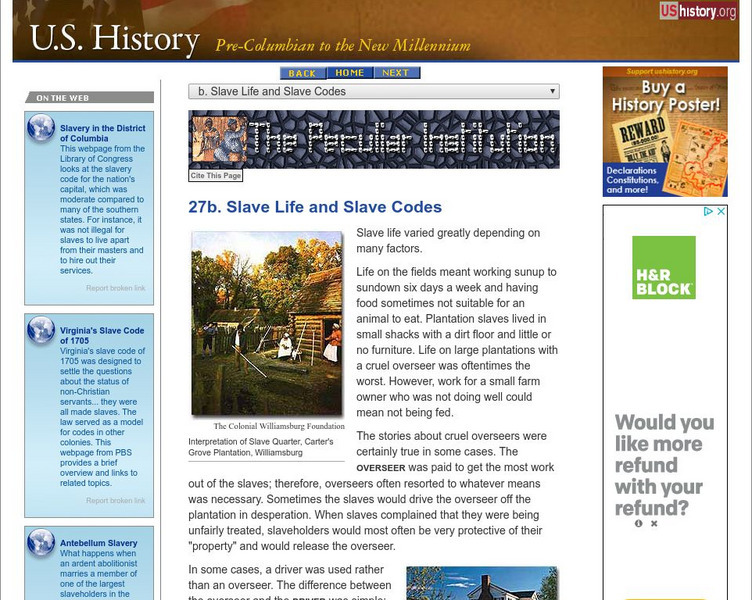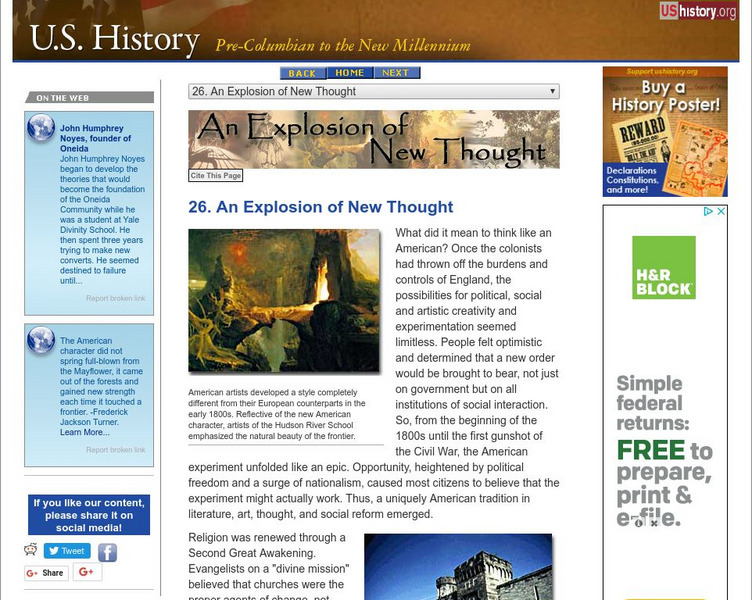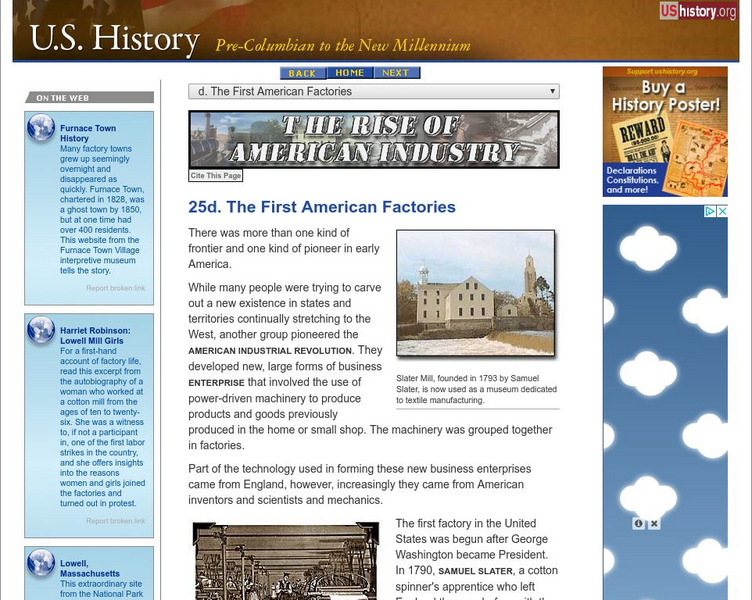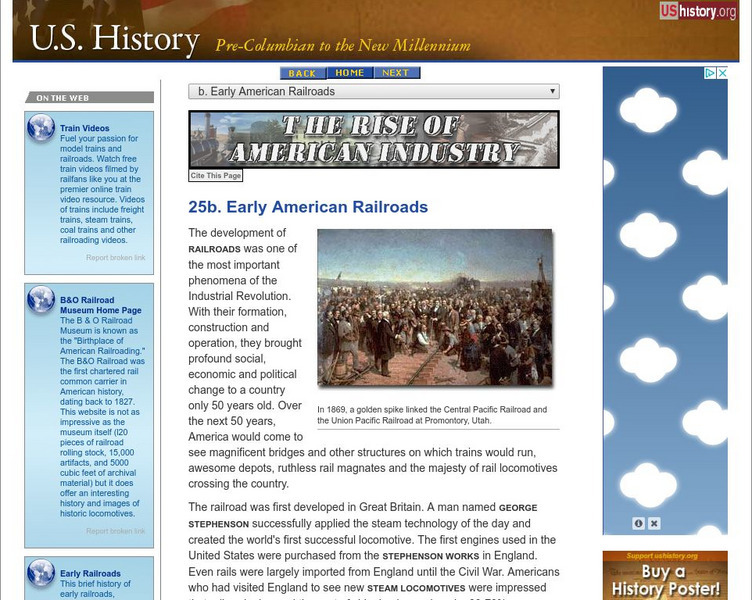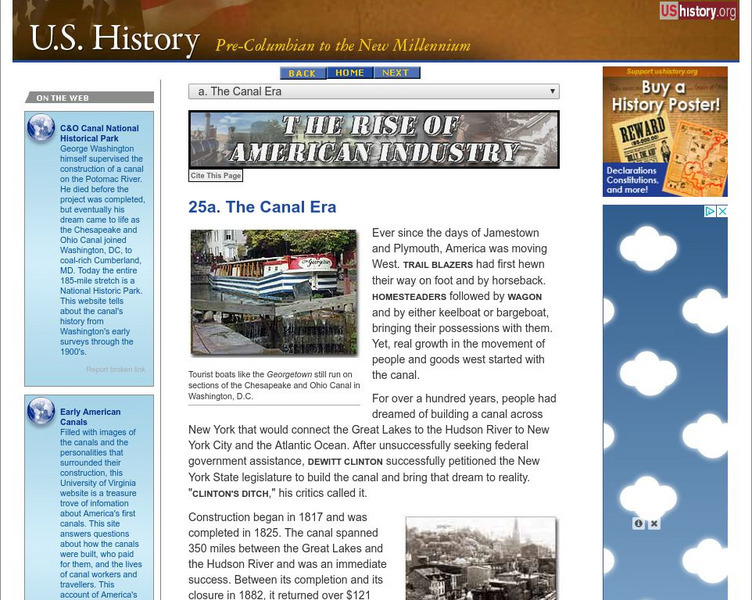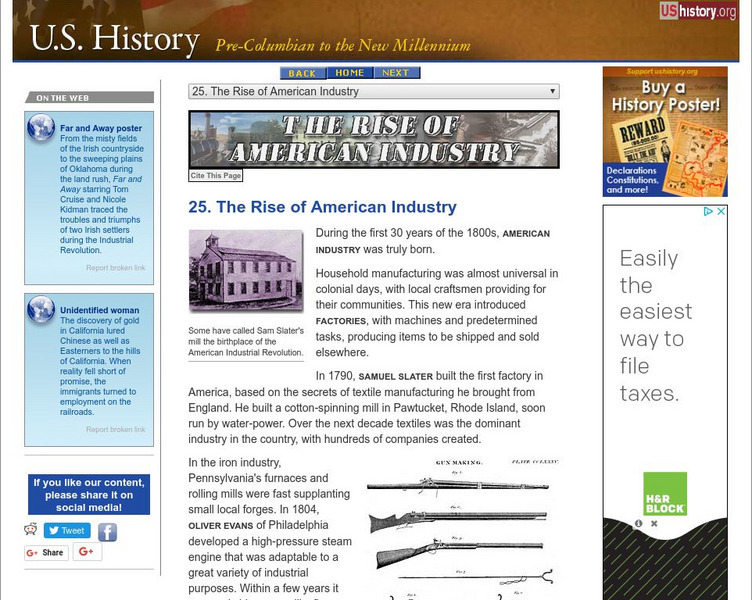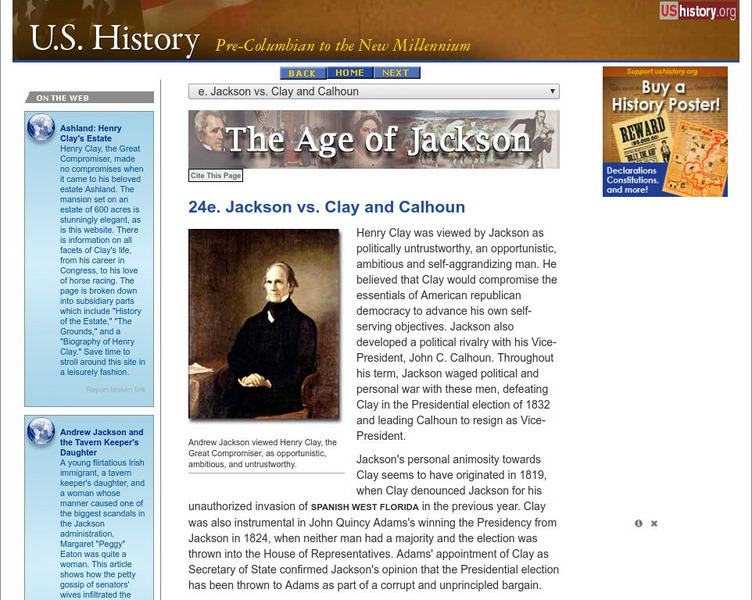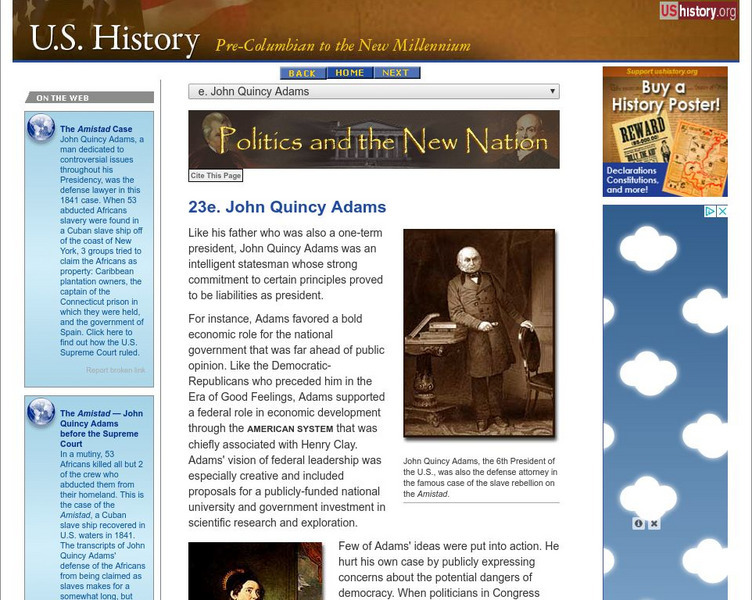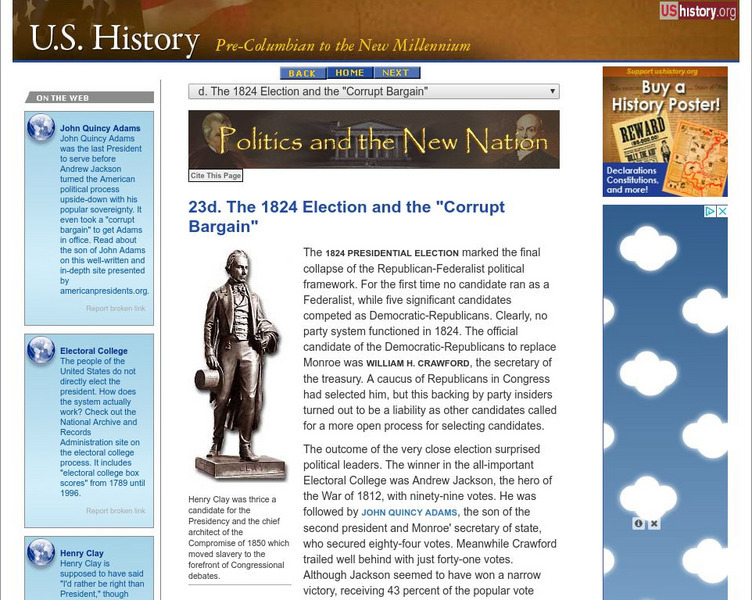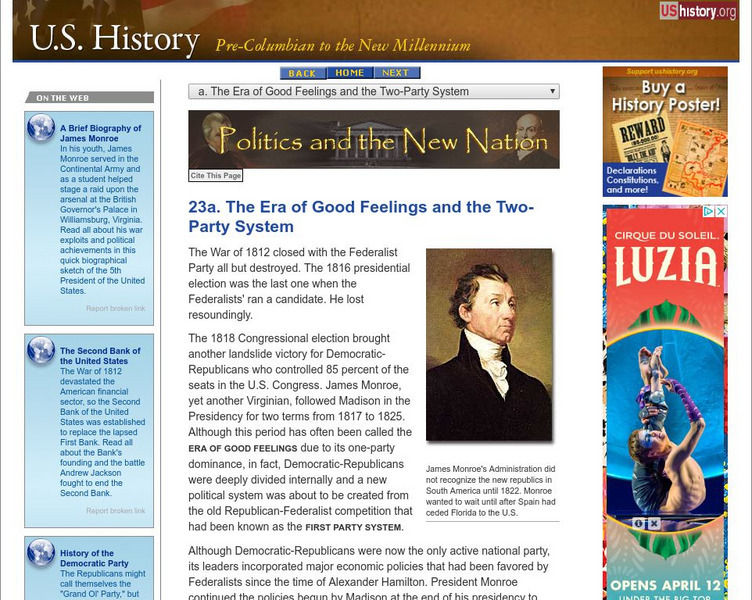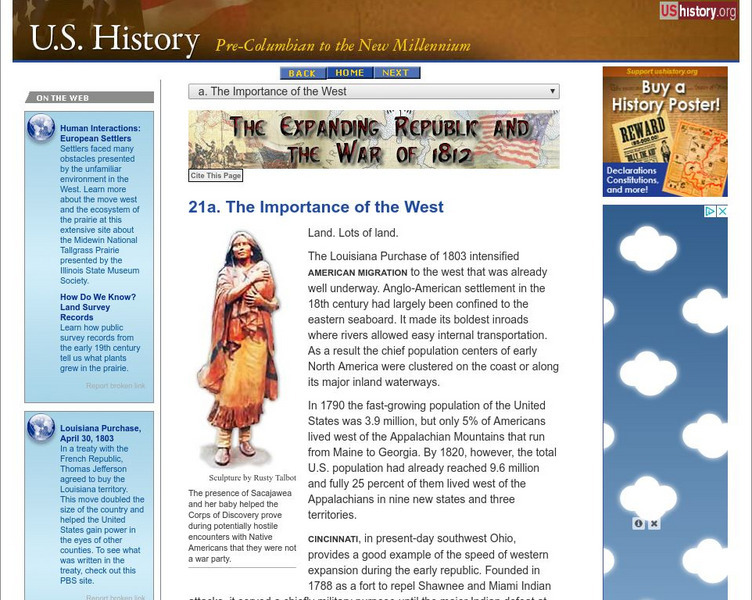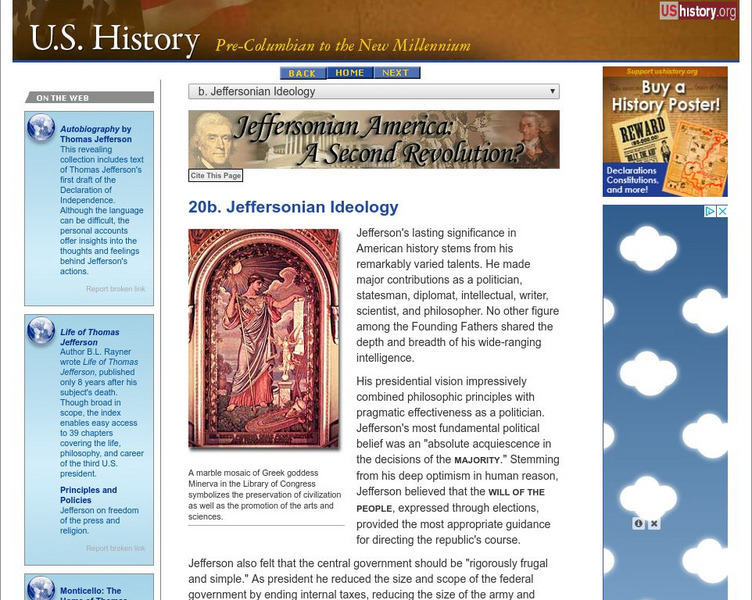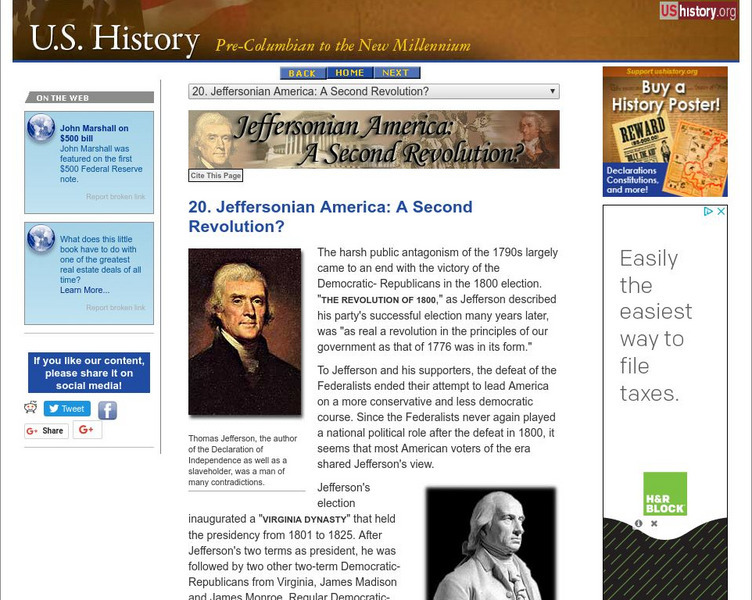Hi, what do you want to do?
Independence Hall Association
U.s. History: The Plantation and Chivalry
The Southern way of life fostered a social code of chivalry and genteelism. Read about what was considered honorable and proper for both aristocratic men and women.
Independence Hall Association
U.s. History: Slave Life and Slave Codes
A description of what life was like for slaves on plantations in the South. See the difference in treatment betwee field slaves and domestic slaves. and find examples of laws enacted under slave codes in several states.
Independence Hall Association
U.s. History: The Peculiar Institution
A very brief look at the "Peculiar Institution" of slavery in the South before the Civil War. Read about how slavery became so entrenced and why it drove a wedge between the North and South.
Independence Hall Association
U.s. History: An Explosion of New Thought
The 19th century brought an Americanization of literature, art, thought, and social reform. Read about how the Second Great Awakening brought a revival in religion and sparked reform movements in suffrage, slavery, and treatment of...
Independence Hall Association
U.s. History: The Emergence of "Women's Sphere"
The Cult of Domesticity and the Women's Sphere pertained to upper-middle class white women, but the ideals spread out into American culture. Read about how such women were supposed to behave, and see what privileges these women might...
Independence Hall Association
U.s. History: The First American Factories
The growth of cities and the American economy in the first half of the 19th century was driven by the growth of factories. Read about the textile industry in New England and how manufacturing spread throughout the north.
Independence Hall Association
U.s. History: Early American Railroads
Read about the growth of railroads throughout the eastern part of the United States, which greatly reduced transportation costs. See why there was opposition to railroads from many groups. Be sure to look at the stereograph of the...
Independence Hall Association
U.s. History: The Canal Era
See how the building of canals in New York, Pennsylvania, and Ohio not only opened up the west by making travelling easier and joining western territories to northern states, but also transformed cities from small burgs to major...
Independence Hall Association
U.s. History: The Rise of American Industry
The Industrial Revolution came to America, smuggled in by Samuel Slater, who brought plans for a cotton-spinning mill. See how the growth of industry led to the growth of corporations, the growth of the nation geographically, and the...
Independence Hall Association
U.s. History: Jackson vs. Clay and Calhoun
Two very important politicians in the Age of Jackson were Henry Clay and John C. Calhoun. Andrew Jackson detested both for personal and political reasons. Read about the relationship between these two men individually and Andrew Jackson.
Independence Hall Association
U.s. History: Age of Jackson: The Rise of the Common Man
Describes how Andrew Jackson emerged as the first populist president to appeal to the common man.
Independence Hall Association
U.s. History: John Quincy Adams
John Quincy Adams was an enigmatic figure. Find out about the progressive ideas he had for the federal government under his presidency, but also read some quotes about how he felt about true democracy.
Independence Hall Association
U.s. History: The 1824 Election and the "Corrupt Bargain"
The two-party system in presidential elections fell apart in the election of 1824. See what happened when five men, all from the Democratic-Republican Party, ran against each other. Find out why the choice of John Quincy Adams was called...
Independence Hall Association
U.s. History: The Missouri Compromise
A good look at the issues debated about the admission of new states, particularly those that would be made from the Louisiana Purchase. Read about why the issue of allowing slavery in the new states was such a hard decision for Congress....
Independence Hall Association
U.s. History: The Era of Good Feelings and the Two Party System
The Era of Good Feelings lasted about a decade, spanning the administration of James Monroe. Read about the policies followed during his administration, and find out why, after the demise of the Federalist Party, there arose another...
Independence Hall Association
U.s. History: Early National Arts and Cultural Independence
Read about the national identity developed in the early 19th century in art and literature. See how both landscape paintings and literature emphasized wilderness themes.
Independence Hall Association
U.s. History: New Roles for White Women
A look at the changes in the role of white, middle-class women as a result of the Second Great Awakening, among other social forces.
Independence Hall Association
U.s. History: Institutionalizing Religious Belief: The Benevolent Empire
Many social movements in the early 19th century had a religious foundation. Read about the Benevolent Empire, a loose coalition of Protestant denominations that addressed social issues of the time.
Independence Hall Association
U.s. History: The Importance of the West
Westward migration, west of the Appalachians, resulted in a rapid population growth. Read about where the population exploded, and why the inland rivers were so important to the growth.
Independence Hall Association
U.s. History: Gabriel's Rebellion: Another View of Virginia
Gabriel Prosser, a skilled slave, planned a revolt as a way to carry out the ideals of the American Revolution and give freedom to slaves. Read about what his vision was, what group of white men might be helpful to his cause, and what...
Independence Hall Association
U.s. History: Jeffersonian Ideology
An easy to understand overview of the thinking of Thomas Jefferson in terms of politics and the role of the people in political action. See what he feared as the nation was becoming industrialized, and read about the contradictions in...
Independence Hall Association
U.s. History: The Election of 1800
The election of 1800 was momentous for many reasons. Read about the defeat of John Adams and his Federalist policies, and see how Thomas Jefferson became president because of a crucial vote by a Federalist.
Independence Hall Association
U.s. History: Jeffersonian America: A Second Revolution?
Read about the peaceful "revolution" that occurred in the election of 1800 when the party in power, the Federalists, was defeated in a democratic election by the Democratic-Republicans. See how this showed that the ideals of the new...
Independence Hall Association
U.s. History: The Iroquois Tribes
The Iroquois were a group of five tribes linked by their language and similar culture. Read about why the Iroquois were such a great example of the elevated role of women in the tribes, the complex lifestyle they had, and their political...






